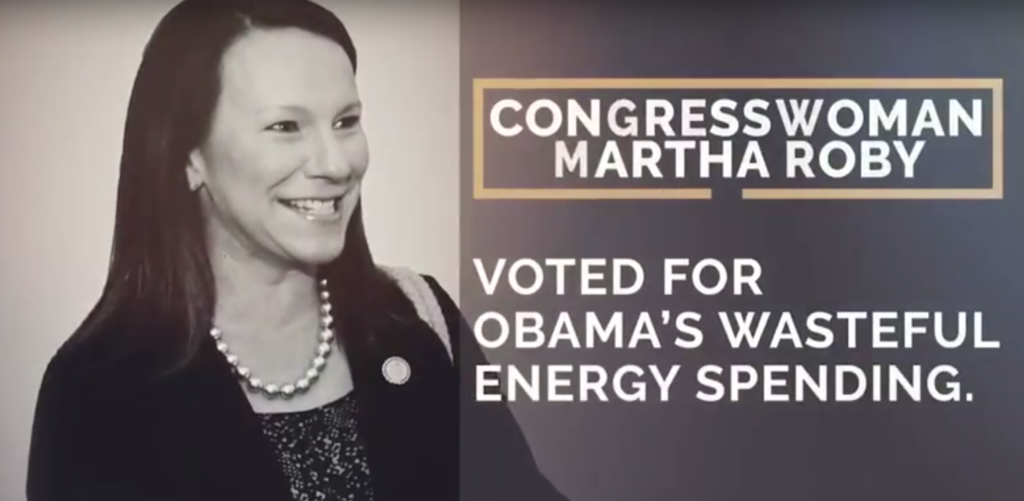Martha Roby: it’s time for a fairer, simpler tax code

The year was 1986. Apple unveiled its Macintosh Plus computer. An 18-year-old named Mike Tyson became boxing’s youngest ever heavyweight champion. The Oprah Winfrey Show debuted on CBS. Moviegoers got the “need for speed” watching Tom Cruise fly F-14s in Top Gun. Americans were heartbroken by the Challenger Space Shuttle explosion. Guy Hunt was elected Governor of Alabama. And New York real estate developer Donald Trump rebuilt the Central Park ice rink. 1986 was a memorable year for many reasons, but what many might not remember is that was the last time the United States revamped our federal tax code. The Tax Reform Act of 1986 was a signature achievement of the Reagan Administration, which worked hand-in-hand with Republicans and Democrats in Congress to lower crippling tax rates and close costly loopholes. In the 31 years since then, much of that monumental law has been rolled back due to piecemeal revisions favoring various special interests. Today, our tax code is a complicated mess, and it’s time for Congress to again enact reform. Over the next several weeks, the House of Representatives is scheduled to move forward with tax reform, and we hope to get legislation to the President’s desk this year. There are four basic tenets of our tax reform plan: 1. Lower tax rates for every taxpayer so that Americans can keep and invest more of what they earn; 2. Lower corporate tax rates to be globally competitive while closing the loopholes put in place to avoid paying our current high tax rates; 3. Simplify the tax code so that most people can file their taxes on a form the size of a postcard; and 4. Clean house at the IRS to make it an agency that works for taxpayers, not against them. Consider the benefits tax reform would have for small businesses and those they employ. I’ve said many times that small businesses are the economic engine of our country. In Alabama, small businesses employ about half of our private sector workforce. Unfortunately, our tax code makes it difficult for them to operate, let alone succeed. Many small businesses pay as much as 44 percent in taxes, which adds up to be more than almost anywhere in the world. On top of that, many businesses are forced to pay high costs just to process their taxes and comply with the related regulations, amounting to $147 billion per year nationally. Easing the tax and regulatory burden on small businesses would allow operators to hire new employees, give raises or bonuses to existing ones, or even expand their business. Pro-growth tax reform could unleash our country’s economic potential and lead to the creation of millions of jobs, many at small and medium-sized business. For individuals, our plan would ensure that taxpayers with similar incomes receive similar tax bills. Makes sense, right? We would also make the tax code simpler and reduce the length of tax returns from the IRS. Earlier this year, President Trump joked that the tax preparation company H&R Block might be the only business that “wouldn’t be too happy” with our tax reform plan. No disrespect to the good people who earn a living helping people file their taxes, but the fact that our tax code is so complicated that many individuals need professional assistance to do their taxes is not a good thing. More simplicity and fairness in the tax code would offer American families the stability and predictability they need to plan for the future. One tax reform proposal I did not agree with was the so-called Border Adjustment Tax, or BAT. While well-intentioned, this tax would have ultimately cost Alabama manufacturing jobs and caused families to pay more for food and clothing. I was glad to see the White House and Congressional leaders reconsider and abandon this plan. Ultimately, our goal is to overhaul our tax code to make it simpler, fairer, and flatter. It won’t be an easy task, but I am committed to working toward a solution that helps grow our economy and improve the quality of life for those I represent. ••• Martha Roby represents Alabama’s Second Congressional District. She lives in Montgomery, Alabama with her husband Riley and their two children.
Alabama Community College System announces new testing partnership

Alabama Community College System (ACCS) Chancellor Jimmy Baker on Tuesday joined Alabama Peace Officers’ Standards and Training Commission (APOSTC) Executive Secretary Chief R. Alan Benefield to sign a resolution that makes the ACT WorkKeys assessment the official testing requirement for admission into APOSTC academies to become a Law Enforcement Officer or a State Correctional Officer. The WorkKeys assessment is currently offered at all of Alabama’s community colleges for workforce development program testing, and will now be the exclusive testing centers for APOSTC’s Basic Ability Test, or BAT. The assessments help measure workplace skills that can affect job performance. Unlike other assessments, they don’t simply give an indication of reading and writing competency. Instead, they measure a range of hard and soft skills relevant to any occupation, at any level, and across industries. Additionally, successful completion of WorkKeys assessments can lead to earning an National Career Readiness Certificate™ (NCRC®) — a credential that verifies foundational workplace skills. “It is an honor for the Alabama Community College System to partner with APOSTC and the men and women in uniform who do so much to protect us each and every day” said Baker. “This partnership will allow law enforcement agencies across the state to easily schedule assessments at our local community colleges, and will provide them with better qualified officers who have the basic skills they need to succeed.” In 2014, APOSTC adopted the BAT as an additional educational requirement for Law Enforcement and Correctional Officer academy applicants to better determine educational aptitude which had become more difficult due to the increase in different types of high school diplomas. After several years of research into best practices in other states, APOSTC determined that the ACT WorkKeys assessment through Alabama’s community colleges was the easiest and most cost-effective method to establish a minimum educational base line that would demonstrate an applicant’s ability to successfully complete the law enforcement and correctional training academies. “The Alabama Peace Officers’ Standards and Training Commission extends our thanks and gratitude to Chancellor Baker and the many individuals within ACCS that made this agreement possible” added Benefield. “This partnership allows applicants to take his or her BAT at any of the 24 community colleges across Alabama, which are conveniently located to all law enforcement agencies in the state.” The ACT WorkKeys assessment is comprised of three skill areas: Applied Math, Graphic Literacy, and Workplace Documents (understanding memos, notices, policies, and other written text). While WorkKeys testing schedules may vary from college to college, pricing will be standard among all colleges: $45 for all three skill area sections or $15 for each individual section.
Club for Growth singles out Martha Roby in border tax fight

Alabama 2nd District Republican Congresswoman Martha Roby is one of four representatives being targeted in a new TV and digital ad released this week by Club for Growth. The free-market conservative group’s ad focuses on the border adjustment tax, or BAT, being tossed around by House Republicans. The plan would levy a 20 percent tax on imports while giving tax breaks to companies that export goods, which opponents say would quickly raise prices on many goods Americans depend on. The BAT is being considered as part of a strategy that would balance the keep government revenue steady if lawmakers stick to their plan of cutting the corporate tax rate from 35 percent to 20 percent. The ad calls Roby out for votes made while President Barack Obama was in office and says her refusal to oppose the BAT tax could lead to a spike in gas, clothing, food and school supply costs that could cost Alabama families up to $1,700 a year. “Congresswoman Martha Roby proudly voted for Obama’s wasteful energy spending, but she’s shy about fighting a trillion-dollar tax hike Congress is cooking up,” the ad narrator said. The ad closes by asking viewers to call Roby’s office and tell her to oppose the BAT. Club for Growth is spending $500,000 on the campaign which, in addition to Roby, is going after Tennessee Republican Rep. Diane Black, South Carolina Republican Rep. Tom Rice and Texas Republican Rep. John Culberson. Watch the ad below:


